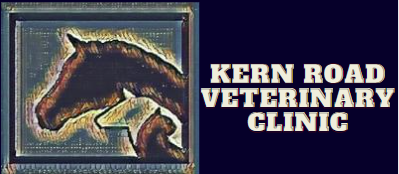Through the spring and summer we have seen several cases of parasite infestation in horses that have been regularly dewormed. We feel that there are several possible reasons for the increase in cases that we are seeing. One of the reasons is that weather conditions have been dry and much of the manure in pastures has not been dissipated by rain, thus exposing parasite eggs to the elements that aid in reducing the load of parasite eggs present. Another reason we see an increase in parasite related problems is that parasite eggs build up in pastures from year to year. The more horses that are turned out in a pasture or paddock the greater the potential parasite load will be. Also the parasite egg is very resilient and survives from year to year creating a greater exposure to infestation each year. Internal parasites can also build up a resistance to dewormers which is why a rotation of deworming products is recommended. All of these things can cause increased risk to problems caused by internal parasite infestation and also create challenges for management of the situation.
Regardless of the success that has been achieved in previous years with a parasite control program, it is necessary to periodically check fecal samples to determine parasite loads. Examining fecal samples at least once per year and preferably twice a year is needed to monitor any parasite control program. Other steps that should be taken:
1. Do not over graze pastures
2. Rotate pastures if possible
3. Keep pastures as clear of feces as possible
4. Aerate pastures as often as possible
5. Plow and reseed pastures regularly
6. Deworm horses frequently-Every 6 to 8 weeks as needed
7. Rotate active ingredient of wormer-Based on fecal exam
8. Isolate new horses and deworm them before turning them into pastures or paddocks used by other horses
9. Haul manure as soon as is possible
10. Remove manure regularly from stalls and small paddocks-they are a source of parasite eggs and recurring exposure for horses mules and donkeys
11. CHECK FECAL SAMPLES
Every farm or stable is different and requires individual parasite control measures. Please contact us if you have any questions about your parasite control program.
